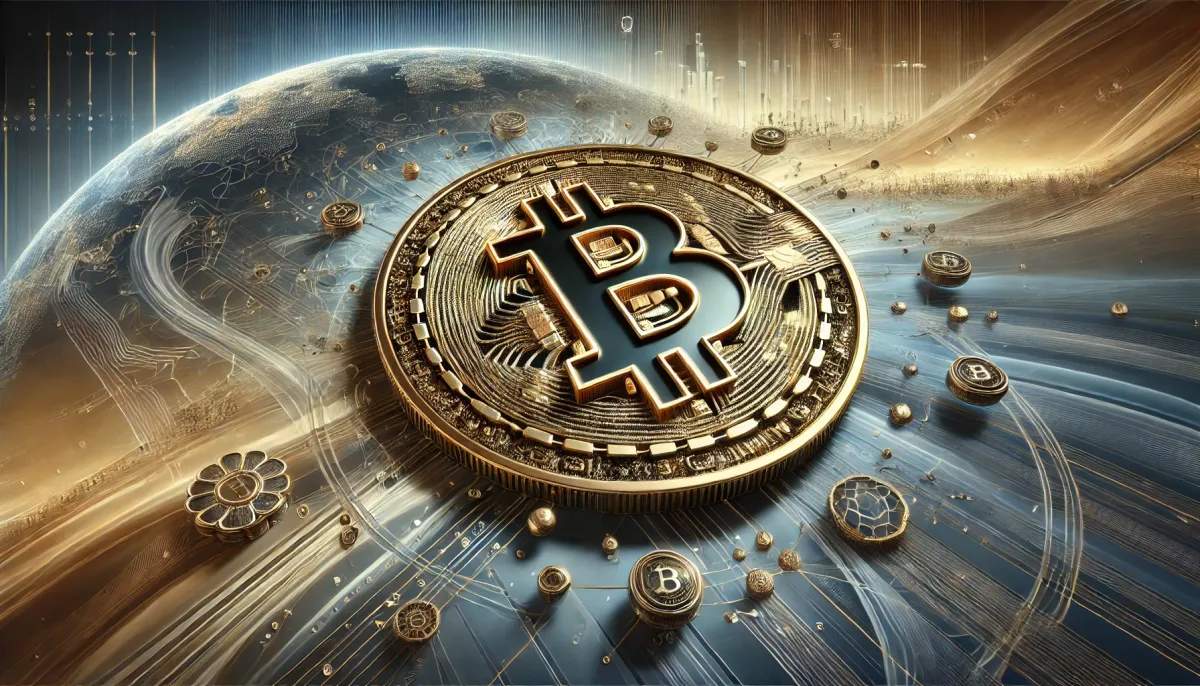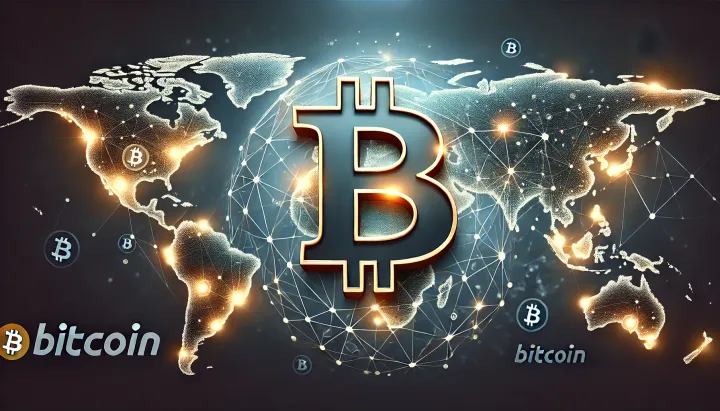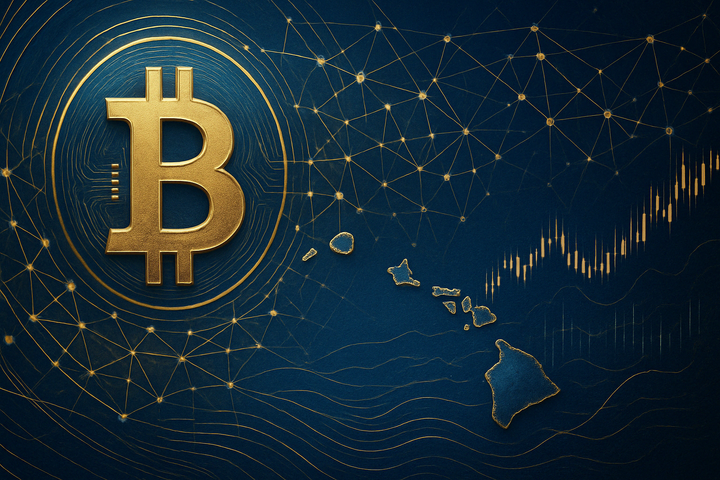Bitcoin as Halal Money: Transforming Finance for Ethical Systems
The November 19, 2024 episode of The New Frontier podcast features Abubakar Nur Khalil exploring Bitcoin’s potential as Halal money, its adoption in Nigeria, and its transformative impact on sovereignty, energy, and financial inclusivity.

- My 'briefing notes' summarize the content of podcast episodes; they do not reflect my own views.
- They contain (1) a summary of podcast content, (2) potential information gaps, and (3) some speculative views on wider implications.
- Pay attention to broadcast dates (I often summarize older episodes)
- Some episodes I summarize may be sponsored: don't trust, verify, if the information you are looking for is to be used for decision-making.
Summary
This November 19, 2024 episode of the The New Frontier podcast explores Bitcoin’s alignment with Islamic ethical principles and its role in empowering underbanked regions. The interview explores insights from Bitcoin core developer, Abubakar Nur Khalil, with the discussion highlighting Bitcoin’s potential as Halal money, its adoption in Nigeria, and its transformative impact on sovereignty, energy, and financial inclusivity.
Take-Home Messages
- Bitcoin aligns with Islamic principles: Its decentralized structure and riba-free nature offer ethical alternatives for Muslims.
- Grassroots rejection of CBDCs: Nigeria’s pivot to Bitcoin exemplifies resistance to failing fiat systems and centralized control.
- Bitcoin mining supports community development: It electrifies underdeveloped regions, driving socio-economic progress.
- Education bridges gaps in Islamic finance: Outreach to scholars addresses misconceptions, fostering faith-based Bitcoin adoption.
- Riba-free financial tools are essential: Developing ethical products like Halal loans will unlock new markets for Bitcoin.
Overview
Abubakar Nur Khalil outlines Bitcoin’s transformative role in global finance, particularly its ethical alignment with Islamic principles. By addressing riba concerns, Bitcoin emerges as a Halal financial tool that empowers Muslims to pursue financial independence while adhering to faith-based values. Abubakar emphasizes Bitcoin’s role in redefining financial sovereignty for individuals and communities worldwide.
The conversation explores the challenges of educating Islamic scholars on Bitcoin’s compliance with Sharia law. Abubakar discusses volatility concerns, disambiguating Bitcoin from crypto scams, and the practical gaps in Bitcoin-based financial products. These challenges require innovative solutions to ensure wider adoption.
Nigeria’s grassroots Bitcoin adoption highlights its potential to replace failing fiat systems. Citizens are increasingly rejecting the eNaira in favor of decentralized alternatives, showcasing Bitcoin’s resilience against centralized financial control. Abubakar shares how similar movements could inform global strategies for integrating Bitcoin into sovereign and individual financial systems.
The episode concludes by addressing Bitcoin’s potential for fostering energy abundance, ethical finance, and sovereignty. Initiatives like Btrust and Recursive Capital are crucial for supporting Bitcoin development and innovation in underbanked regions, ensuring a sustainable and equitable financial future.
Stakeholder Perspectives
- Islamic Scholars: Hesitant due to concerns about compliance with Sharia law but open to educational engagement.
- Governments in Developing Nations: Exploring Bitcoin for financial sovereignty and sustainable energy solutions.
- Underbanked Populations: Seeking accessible, ethical financial tools free from riba and centralized control.
- Bitcoin Developers and Advocates: Focused on UX/UI improvements and fostering grassroots adoption globally.
Implications
Bitcoin offers a bridge between ethical finance and technological innovation. Addressing misconceptions in Islamic finance will unlock new adoption pathways, creating opportunities for faith-based communities. Developing riba-free financial products will transform how Muslims engage with Bitcoin, fostering global financial inclusion.
Bitcoin mining holds potential for electrifying underdeveloped regions, promoting socio-economic progress. Governments exploring Bitcoin for sovereign wealth funds or energy solutions will drive its integration into global financial systems, challenging traditional fiat dominance.
Future Outlook
Bitcoin’s decentralized nature and ethical framework position it as a transformative tool for global financial equity. Initiatives like Btrust and grassroots adoption movements will shape its future. Addressing gaps in education and infrastructure will ensure Bitcoin’s relevance in faith-based and underbanked communities.
Nigeria’s case illustrates Bitcoin’s resilience as an alternative to centralized control. Expanding energy projects and refining ethical financial tools will cement Bitcoin’s role in fostering financial independence and sustainability globally.
Information Gaps
- How can Bitcoin’s compatibility with Islamic principles be effectively communicated to scholars and the Muslim community? Bridging this knowledge gap will enable broader adoption in faith-based communities, unlocking untapped markets.
- What frameworks can ensure Bitcoin mining supports sustainable energy production in underdeveloped regions? Such frameworks can address environmental concerns and amplify Bitcoin’s role in promoting energy abundance.
- What innovative solutions can simplify KYC-free Bitcoin onboarding while maintaining compliance? Addressing access barriers for underbanked populations will enhance adoption while preserving financial sovereignty.
- What design principles are essential for creating riba-free Bitcoin lending products? Ethical loans aligned with Islamic values will expand Bitcoin’s relevance in global finance.
- What lessons can be drawn from Nigeria’s grassroots Bitcoin adoption for other nations? Understanding Nigeria’s experience will guide strategies for resistance to centralized control and fiat failures.
Broader Implications for Bitcoin
Bitcoin and Ethical Finance
Bitcoin offers a unique opportunity to redefine global financial systems by aligning with ethical and religious principles. Its riba-free nature and decentralized structure address core concerns in Islamic finance, paving the way for broader adoption in faith-based communities. Successfully integrating these principles into financial products can serve as a model for ethical systems worldwide.
Empowering Underbanked Populations
Bitcoin’s accessibility provides an alternative for underbanked regions suffering from systemic financial exclusion. By leveraging peer-to-peer technology, it bypasses traditional financial barriers, empowering individuals in Africa and other underserved areas. Developing tools for seamless onboarding will amplify Bitcoin's role in fostering global financial equity.
Energy Abundance and Sustainability
Bitcoin mining has the potential to revolutionize energy infrastructure in underdeveloped regions. By repurposing surplus or stranded energy, mining can electrify communities and drive economic growth. Encouraging sustainable mining practices will strengthen Bitcoin's reputation as a catalyst for positive environmental and socio-economic impact.
Financial Sovereignty and Decentralization
Grassroots movements like Nigeria’s rejection of the eNaira highlight Bitcoin’s role in resisting centralized financial control. Nations adopting Bitcoin as part of their sovereign wealth strategies could achieve greater financial independence. This trend signals a shift toward decentralized systems that prioritize long-term stability and autonomy.
Innovation in Financial Tools
The development of riba-free Bitcoin-based lending products represents a frontier for financial innovation. These tools can bridge the gap between traditional finance and decentralized systems while adhering to ethical frameworks. Success in this domain could establish Bitcoin as a foundational layer for a reimagined global financial system.



Comments ()